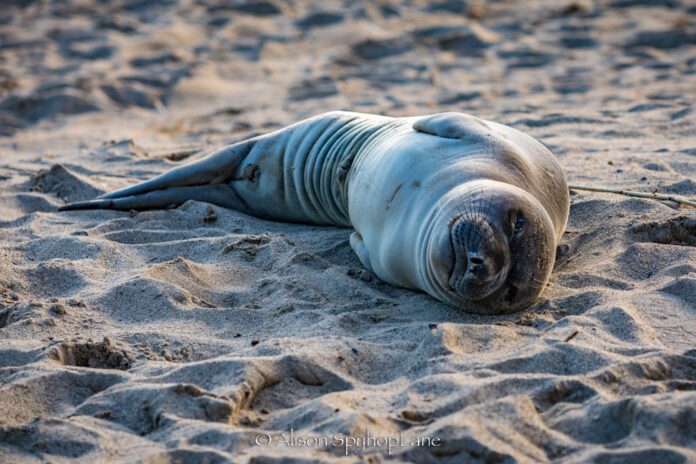
Experts Warn Against Harassment of Stranded Elephant Seal Pups
By Jimy Tallal and Hayley Mattson
Experts are urging beach visitors to leave stranded marine mammals alone and not take selfies with them. The warning comes after several incidents of elephant seal pup harassment were reported in California’s Point Dume beach. Alison Mytych, Malibu’s official whale counter, reported at least three elephant seal pups stranded on the beach after rough weather. The pups get exhausted and underweight from being unable to hunt in choppy seas, making it difficult for them to return to the water.
However, despite warnings, some visitors have been crowding around the stranded pups, trying to touch them, and even picking them up. This can cause serious harm to the animals, delay rescue efforts, and can result in hefty fines of up to $25,000.
“The high winds and choppy sea make it difficult for the ES pups to hunt, and they get very tired and strand on the beach underweight and exhausted. Twice, I saw people directly harassing them while waiting for the California Wildlife Center’s Marine Mammal Rescue to arrive- they’ve been inundated with critical animals, and rescues get delayed. Do not get close or touch them. It’s a $25,000 fine to harass a marine mammal,” Mytych said.
Marine mammals play a crucial role in ocean ecosystems, and human interference can lead to severe harm or even death. For example, disturbing a nursing mother or separated calf can cause extreme stress and can lead to their death. In addition, human interactions can affect the behavior and migration patterns of marine mammals.
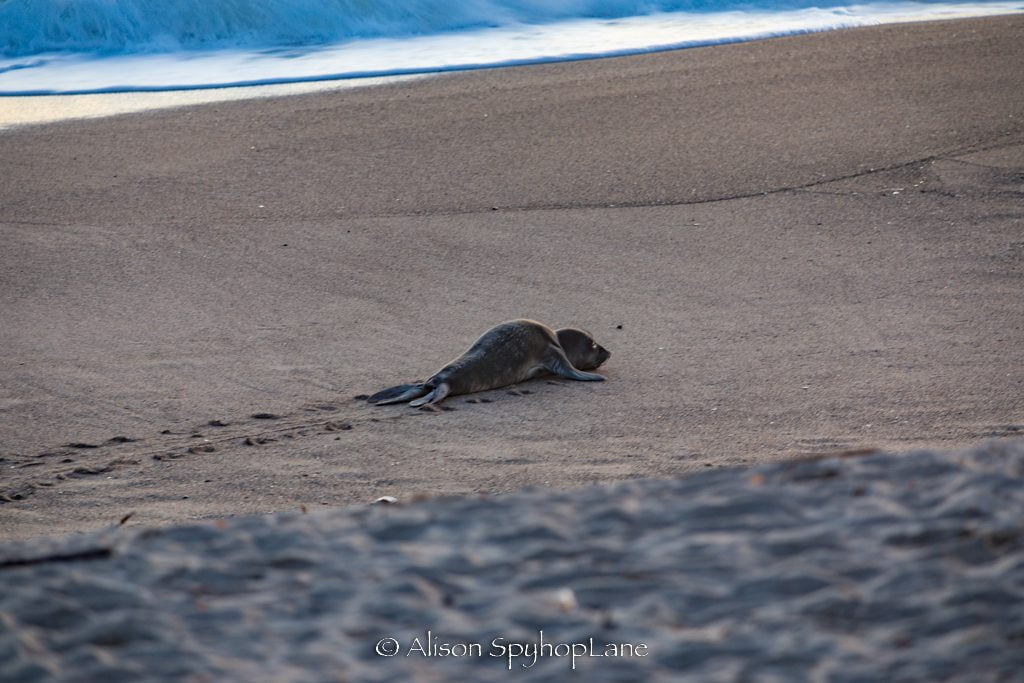
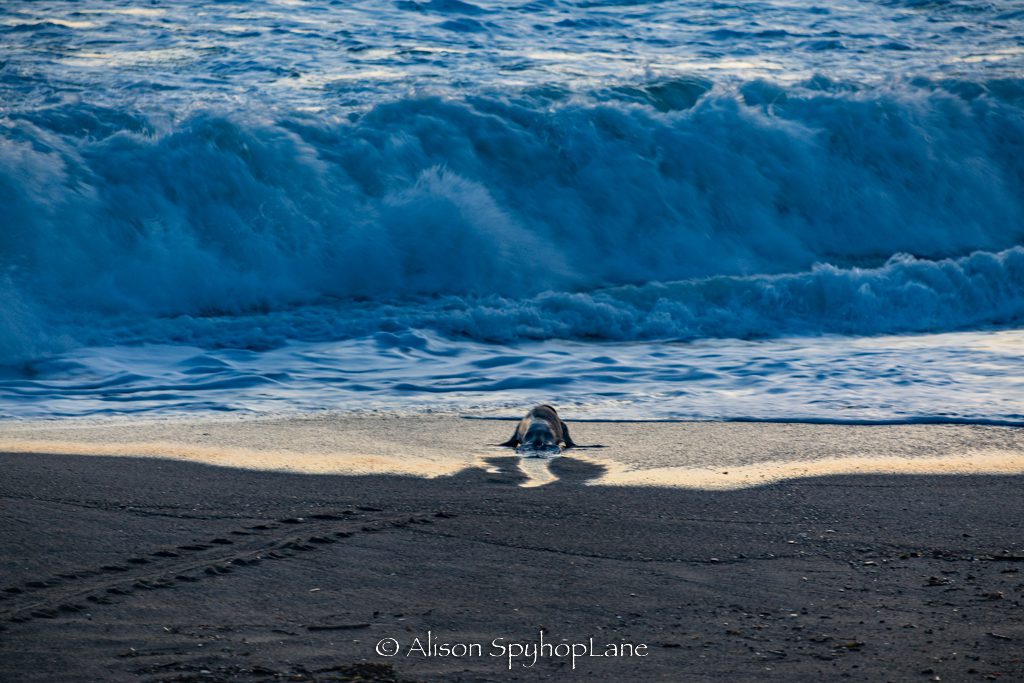
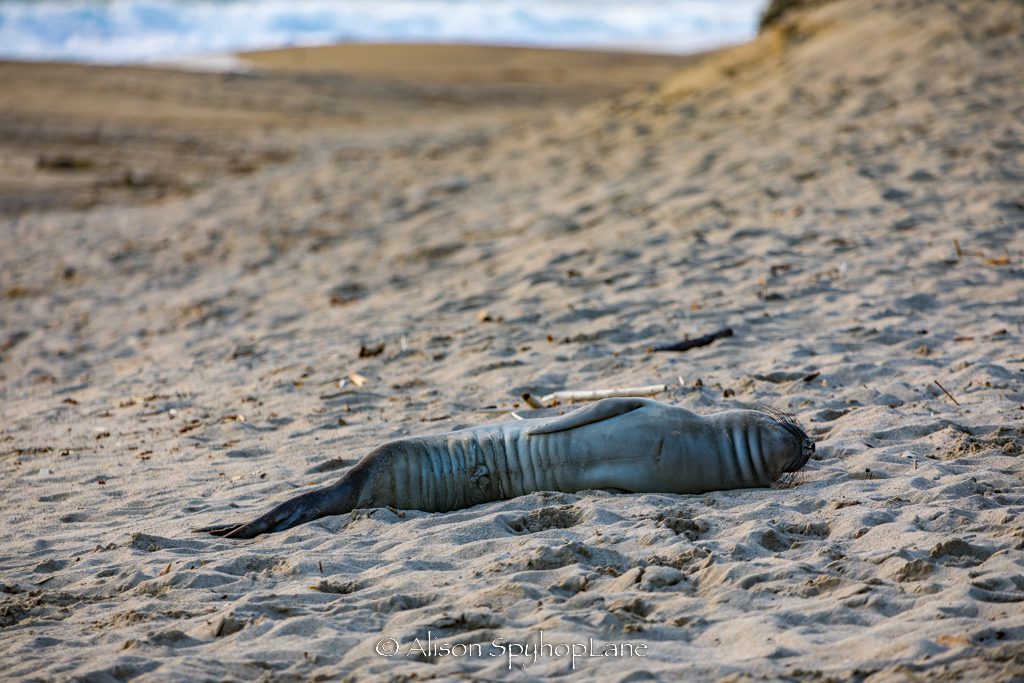
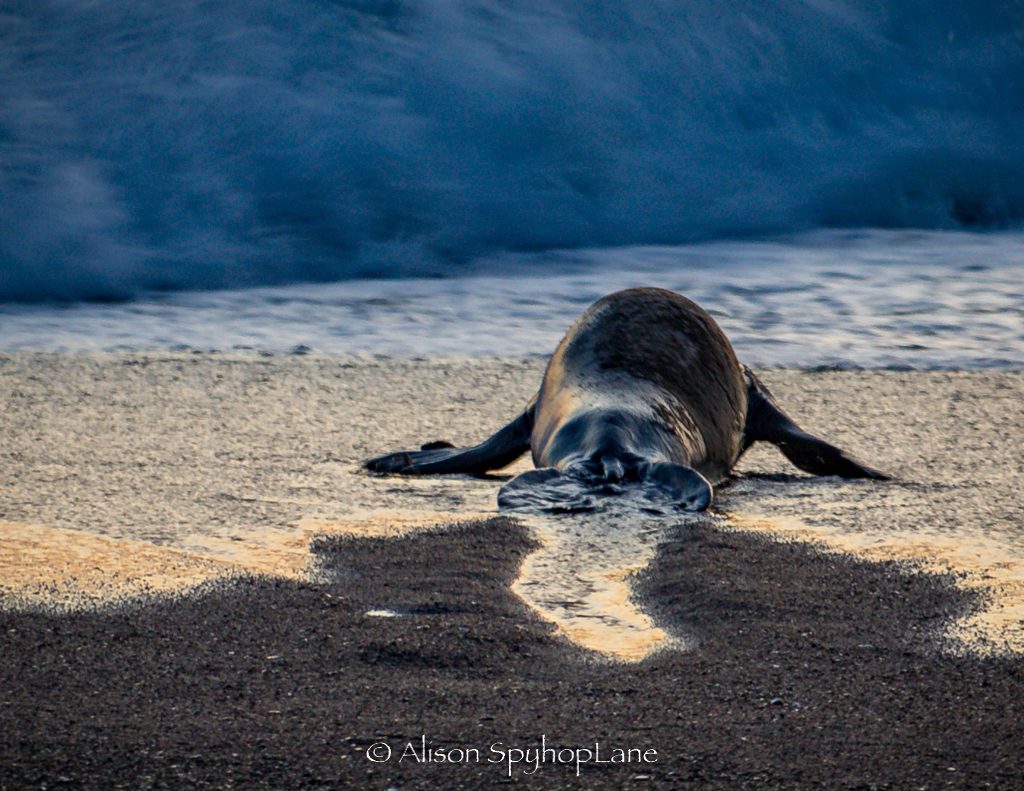
According to the National Oceanic and Atmospheric Administration (NOAA), there were 5,369 marine mammal strandings in the United States in 2019. Of those, 73 percent were from natural causes, while 27 percent were caused by human interaction, including entanglement in fishing gear, ship strikes, and harassment.
“People are crowding the pups to get selfies and trying to touch them — the pups get chased off dry sand and go back in the water and wash up later or the next day somewhere else. One man put a towel over a pup’s head and literally picked it up and carried it, squealing while it was trying to bite him! People rushed from all areas to yell at him to put it down — it was quite a scene — right at dusk as the sun set on one of the windiest nights,” Mytych said.
It is crucial to respect the space and well-being of marine mammals to ensure their survival and the health of the ocean ecosystem. Beach visitors are urged to keep a safe distance from stranded animals, report sightings to the appropriate authorities, and let trained professionals handle the situation.
To contact the California Wildlife Marine Mammal Response team, call (310) 458-WILD, press option 1, or visit cawildlife.org.
